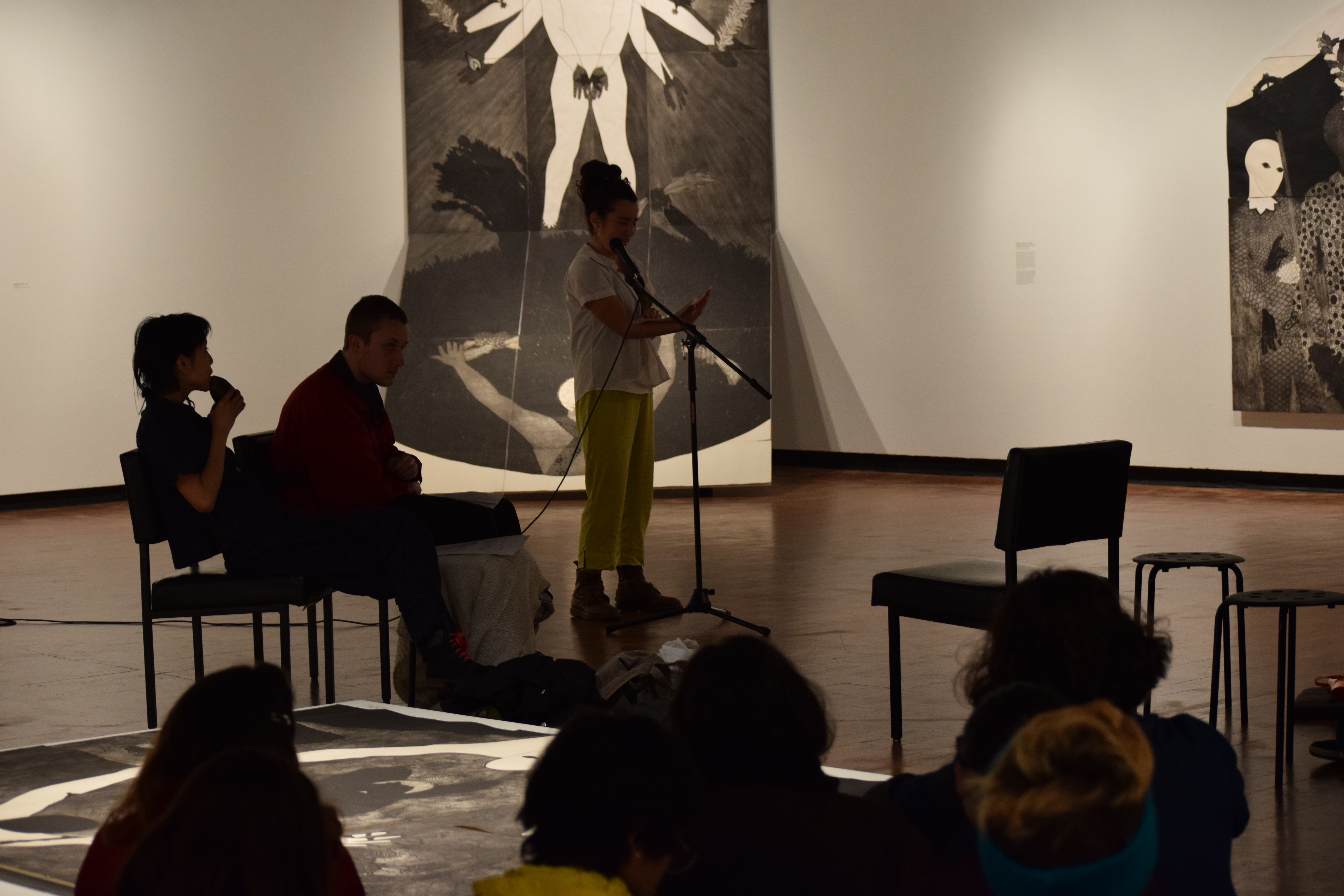Westwind’s Winter Poetry Reading: A Space For Vulnerability and Resistance

Photo by Erika Salazar
This past Wednesday, Westwind – UCLA’s creative journal of the arts – hosted their Winter poetry reading at the Fowler Museum. The reading was set against the Fowler’s current exhibit of Cuban printmaker Belkis Ayon’s work, “Nkame.” The Editor-in-Chief of Westwind, fourth-year English major Natalie Green, opened the reading with a brief, timely message on the ever-so-important function of the arts, and then introduced the featured poets: Annakai Geshlider and Ashaki Jackson.
Geshlider is a fourth-year World Arts and Cultures major – she read her poetry accompanied by her friend playing the flute. Her poetry was vulnerable, vibrant, and insightfully funny. They explored overflowing – from tears to faulty sprinklers – and were interspersed with puns and witticisms: “I am allergic to overpriced academia nuts,” she declared. Geshlider says: “I write to find new ways [to] think, to help out when old words couldn’t do the trick. I write to unzip chesty laughter. I write to confuse myself – confusion helps me ask new questions. I write to keep the taste of delicious word combos on my tongue, and to delight in these sounds with others.”
Ashaki Jackson is a Los Angeles-based poet and social psychologist, amongst many other things. She read from her recently published chapbook, “Surveillance,” which explores the phenomenon of what she calls “death videos” – videos of police brutality against Black people that go viral on social media. Her poetry questions and frequently challenges notions of the “audience,” and who gets to be in it, as well as what this widespread consumption of violence against Black bodies contributes to. In an interview after the reading, Jackson explained that she sees those videos as a huge part of a “burgeoning culture of gaslighting” – millions of people watch them to justify what happened, to extract some kind of proof that the victim really was “threatening.” “It’s now entertainment,” Jackson said. “I wanted to explore the history of surveillance … and how it’s been embedded in policy and laws from the 1700s, which are still in the works.”
The reading was an important reminder of the role that poetry plays in the face of capitalist and fascist regimes. When asked about the importance of journals like Westwind on college campuses, Westwind Editor-in-Chief Green said: “I want to stress the idea of community now more than ever. People need to feel heard whether or not you agree with them and I want Westwind to be a space that does that, both in print and in the events we put on.”




